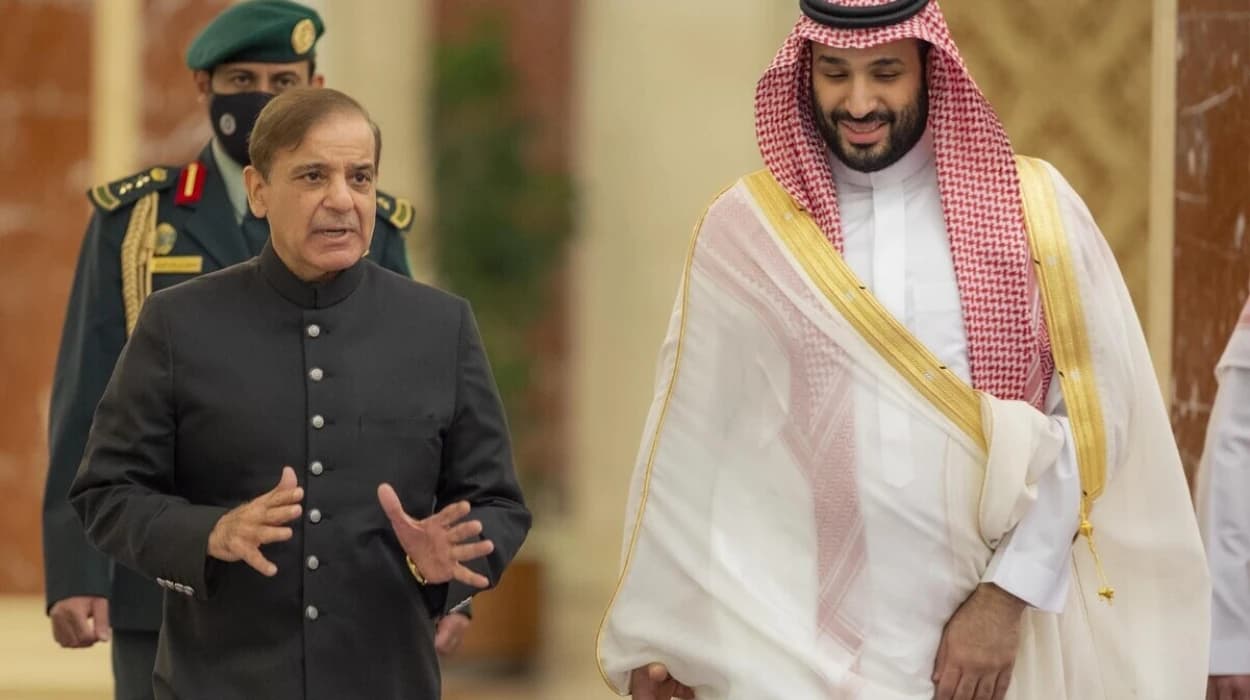Saudi Crown Prince Mohammed bin Salman visits the United States aiming to secure a defence partnership, advanced F-35 fighter jets, and nuclear technology to bolster Saudi Arabia’s strategic capabilities. The visit signals a deepening of US-Saudi ties amid regional security challenges and efforts to diversify Saudi Arabia's military and energy sectors.
Saudi Crown Prince’s Strategic Visit to the US
Saudi Crown Prince Mohammed bin Salman has embarked on a
significant diplomatic mission to the United States, focused on cementing a
defence pact, acquiring F-35 stealth fighter jets, and negotiating access to
nuclear technology. This visit highlights Riyadh’s intention to strengthen its
military prowess and nuclear energy development, reflecting the kingdom’s
broader strategic ambitions in the Middle East.
As reported by the journalist Tzvi Joffre of Ynetnews, the
crown prince is primarily seeking to finalise a defence agreement with the US,
which would include the delivery of the advanced F-35 fighter jets that Saudi
Arabia has long coveted. The deal would mark a notable shift in Saudi-US
military relations, raising implications for regional security dynamics.
Additionally, Crown Prince Mohammed bin Salman is pursuing cooperation on
nuclear technology, signalling Riyadh’s push to develop a peaceful nuclear energy
programme that complements the kingdom’s Vision 2030 economic diversification
plan.
Defence Pact and Military Modernisation
The core of the visit revolves around a defence pact that
could strengthen military cooperation between the US and Saudi Arabia. As
stated by the Ynetnews report, Saudi Arabia views the acquisition of the F-35
jets as a crucial step in modernising its air force and maintaining a
competitive edge amid escalating regional threats, particularly from Iran and
proxy groups.
Such an agreement, if realised, would deepen security ties
and facilitate extensive US military support, intelligence sharing, and
advanced weapons sales. According to defence analysts quoted by Ynetnews, the
move also suggests that Saudi Arabia is looking beyond legacy platforms and
seeking cutting-edge technology to ensure air superiority.
Nuclear Technology Collaboration
Another pivotal element of the visit is Saudi Arabia's quest
for nuclear technology access. This initiative is part of Riyadh’s broader
strategy to harness nuclear energy for peaceful purposes, including power
generation and industrial applications. Nuclear capability also carries
strategic weight in counterbalancing Iran’s nuclear ambitions, thereby
increasing Saudi Arabia’s regional influence.
Reports underscore that the US-Saudi nuclear cooperation
talks are sensitive, given global non-proliferation concerns and the need for
strict regulatory oversight. The negotiations aim to balance Saudi desires for
technological advancement with Washington’s strategic interests in preventing
nuclear weapons proliferation in the Middle East.
Regional and Global Implications
The potential US-Saudi defence and nuclear agreements carry
wide-reaching implications. The deal would represent a recalibration of US foreign
policy in the Middle East, signalling continued support for a key Gulf ally
against increasing regional instability. It also underscores the geopolitical
competition with Iran and reassures other Gulf Cooperation Council (GCC) states
about US commitment to their security.
Analysts from multiple media outlets note that this enhanced
partnership could provoke reactions from Tehran and affect the ongoing dynamics
of the Iran nuclear deal talks and broader Middle Eastern diplomacy. The
agreements may also influence relations between Saudi Arabia and other global
powers such as Russia and China, who are courting influence in the region.
Statements from Officials and Experts
Tzvi Joffre of Ynetnews cites Saudi and US officials emphasising the strategic nature of the discussions, framing them as steps toward stabilising the region and fostering mutual security interests. The Crown Prince reportedly stressed,
“Our cooperation with the United States is pivotal for maintaining regional peace and countering destabilising forces.”
Meanwhile, US defence sources acknowledged the talks were at an advanced stage
but cautioned that details remained under negotiation.
Defense and nuclear policy experts interviewed by Ynetnews
highlighted the complexity of the talks, noting the fine balance between Saudi ambitions,
US legislative and regulatory frameworks, and international non-proliferation
commitments. Experts suggested that successful agreements would mark a historic
deepening of US-Saudi relations while maintaining rigorous safeguards.
Background Context
Saudi Arabia has historically relied on US military hardware
and strategic support but has not yet acquired the F-35 jets, which are among
the most advanced fighter aircraft globally. The kingdom’s previous military
purchases have included F-15s, Patriot missile systems, and other US-made
defense platforms.
Furthermore, Saudi Arabia’s nuclear energy development has
been an area of increasing focus, aligned with Vision 2030’s aim to diversify
the kingdom’s energy mix and economy. However, nuclear cooperation with the US
has been constrained by regional security sensitivities and non-proliferation
commitments.
The Saudi Crown Prince’s visit to the US represents a pivotal moment in bilateral relations, with potentially transformative agreements on defence and nuclear technology. Enhanced US-Saudi cooperation aims to bolster regional security, military modernisation, and technological advancement. The outcomes of these talks will be closely watched in Washington, Riyadh, and across the global geopolitical landscape.
